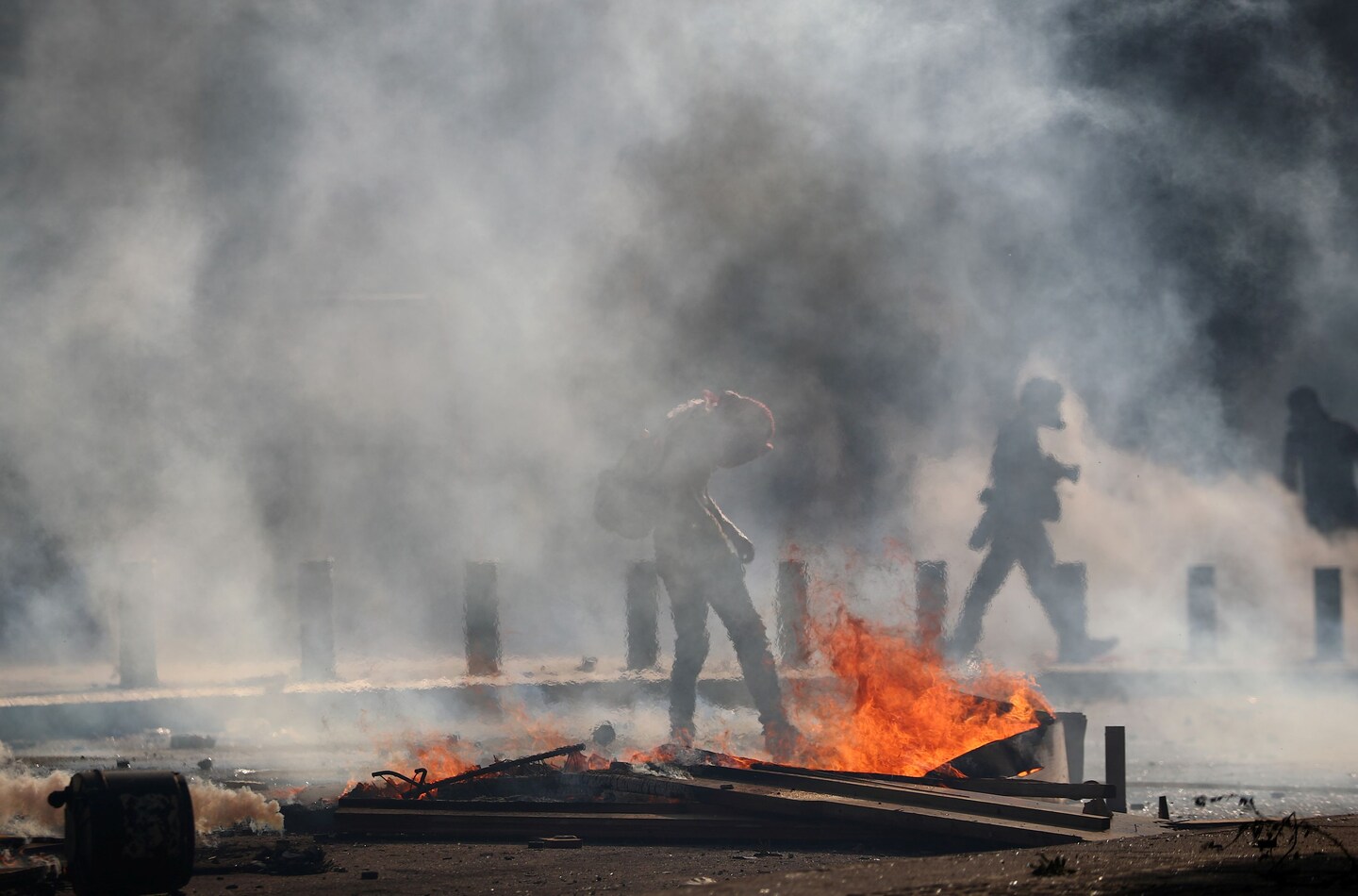Beirut rocked by protests as grief over blast turns to fury

As death toll in Tuesday’s explosion climbed to at least 158 people, with more succumbing to injuries on Saturday, ambulances ferried newly injured demonstrators to hospital. The mood was dark and desperate.
An elderly man with gray hair was carried out of the crowd, an eye out and bleeding from the head. Calls for retributions against corrupt leaders abounded.
“Resign or hang,” read one posting for the demonstration that circulated online. It showed a cedar tree — the symbol of Lebanon — engulfed in flames and two nooses. Demonstrators had erected a large gallows in the square with cardboard cut outs of the leaders of the country’s political factions.
The tragedy has sparked an outpouring of anger among the population, already reeling from economic collapse that has pushed much of its middle class into poverty and chaffing from decades of political corruption and cronyism.
The fury has been directed at the full spectrum of Lebanon’s political factions, including the powerful Shiite militia Hezbollah, which is widely believed to wield control over the port where 2,750 metric tons of highly explosive ammonium nitrate sat unsecured for more than six years.
“Have you seen my son?” the mother of 23-year Joe Akiki, an electrician at the port who died in the blast, screamed into a microphone in front of the gathered crowd. “He has beautiful hazel eyes. Where are you my son? You buried our sons.”
hose gathered held up pictures of the victims of the blast, which left about 6,000 people were injured. Some 21 people are still missing, according to the Ministry of Health.
“Murdered, not martyred,” read one sign held by a demonstrator. “Leave, you garbage,” another.
Earlier in the day in Mar Mikhael, a neighborhood packed with bars and restaurants that stretches up from the port, activists had set up a wooden gallows.
In the neighboring Gemmayze area, where young volunteers have led the clear-up operation with little sign of any government assistance, Beirut’s governor, Marwan Abboud, was met with chants of “Revolution!” by furious residents. One person held up a rope fashioned into a hangman’s noose as Abboud hurried to leave in his black SUV.
“Some people who never took to the streets are going today with a vengeance,” said Hussein El-Achi of the Min Tishreen activist group, who said it was not about the numbers. “It’s about the rage that will be in the demonstration.”
A mass demonstration movement against government corruption erupted in Lebanon October last year, but waned in recent months, even as the standard of living has plummeted. The Lebanese pound has lost at least two-thirds of its value since the fall, slashing the value of people’s salaries as prices have risen.
“Money is just a number now, it’s worthless,” said Imad Mukhalalati, a 50-year-old taxi driver. “I’m not sad, I’m angry.”
Shadi Alame, 29, was buying a face mask printed with the Lebanese flag on the main drag of Gemmayze before heading to demonstrations said the whole system was to blame “from top to bottom.”
“It’s all the politicians from the president to Nasrallah to Berri,” he said, referring to Hezbollah leader Hasan Nasrallah and Nabih Berri, the speaker of the parliament and head of the Amal movement. “They are stealing everyone’s money, stealing people’s rights.”
In a speech Friday, Nasrallah, Hezbollah’s leader warned Friday not to hold the Shiite militia responsible for the blast.
“If you want to start a battle against the resistance over this incident, you will get no results,” Nasrallah said, referring to the Iranian-backed militia, that is also a dominant force in the country’s politics.
“The resistance, with its strength and patriotism, is greater and bigger and stronger than to be hit by those liars who want to push and provoke for civil war,” he added. “They will fail and they will always fail.”
But the anger on the streets is visceral, as the city continued to bury its dead on Saturday and the death toll climbed.
Adding to the grief and frustration are myriad unanswered questions over what caused the blast.
It is still unclear what caused an initial explosion and fire before another that produced the massive mushroom cloud above the city that experts said was consistent with thousands of tons of ammonium nitrate igniting.
“People refuse to live under their rule anymore,” said El Achi, adding that these would be different to demonstrations last year. “At first we were asking them. We had demands. But today we’re not asking any more, we are acting, we are taking back what is ours.”
He said he expected violence.
“A lot of people already have in mind that today there will be blood.”






